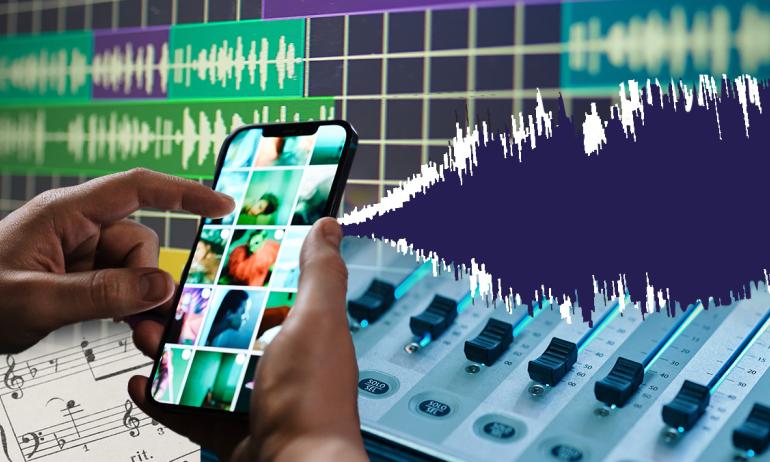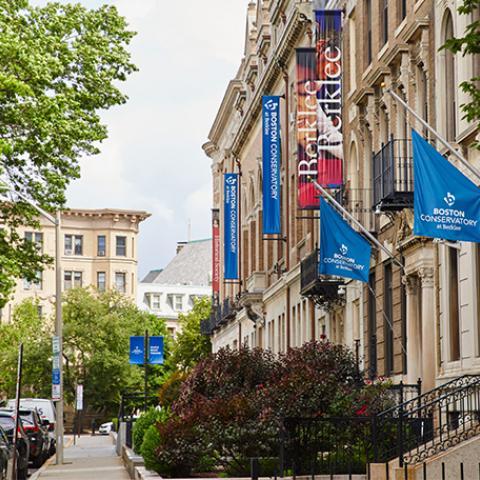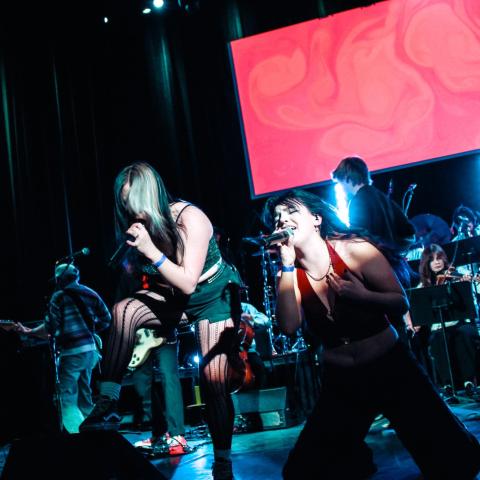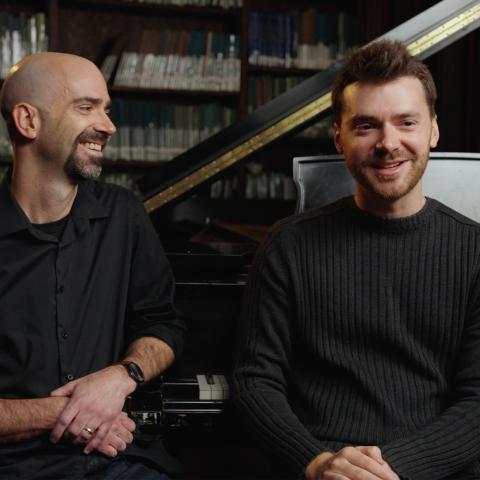How Two Berklee Alumni Landed Songs in the Oscar-Winning Film Anora
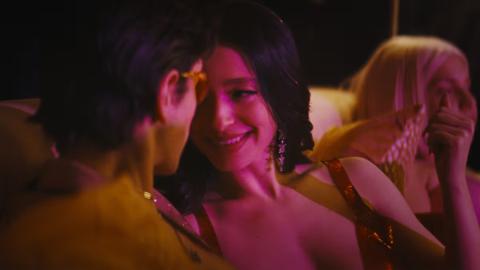
A scene from the award-winning film Anora.
Image courtesy of NEON
Joseph Capalbo BM ’12 and Lyusi Simon BM ’16 had never seen each other face-to-face before this Zoom call. Until now, their working relationship happened mainly over email and text. And despite this challenge, the collaborators have two songs in Anora, which won the 2025 Academy Award for Best Picture in March.
On the call, Simon, a singer/songwriter based in Moscow, Russia, and Capalbo, a songwriter and producer in Florida, are still visibly buzzing about the film's wins at Hollywood's biggest night, recalling how surreal it was watching the broadcast and finding themselves so close to the night's highest honor. They had recently collaborated on an Instagram post with director Sean Baker featuring the two of them performing an acoustic version of "Be with Me" from the film, and that night the video was at the top of Baker's feed.
"As I was watching the Oscars, and [Baker's] just received his first win, he's doing the speech. My phone is blowing up," Capalbo says.
Global Collaboration
The pair first connected in 2017 when Capalbo was looking to collaborate with artists that were fluent in different languages. While at Berklee, his songwriting classes had a "big infusion of production inside of the classes. So we were producing songs and kind of trading songs and producing each other's songs." He would also produce music based on prompts from his professor's real sync licensing work for film and TV. "It got me into the swing of writing and producing for sync," he says.

Joseph Capalbo
Image courtesy of the artist
When creating sync music like "Be with Me" (which the duo perform) and "Depart" (performed by Red Hammer), Simon and Capalbo often start with musical sketches or prompts, sometimes even based on hypothetical film scenes, which can later end up fitting actual projects.
“We were making music that felt like it could live in a film, even before it was placed," says Capalbo. "When it finally ended up in Anora, it just made sense. We didn’t know it would land in a film like this—but it was built for that kind of emotional impact. That’s what we always aim for.”
“It was surreal to hear it in the film. It was one of those ‘full circle’ moments . . . you put your heart into something and then one day it’s part of a story on screen," says Simon. ”It’s such a good example of what can happen when you just trust the process and collaborate freely. I felt like we had such a great creative flow.”
The Benefit of Berklee
Both Simon and Capalbo credit Berklee for their current success. “Berklee opened my mind to so many styles," says Simon. "I used to be, like, a jazz purist, and I realized there's so much beauty in pop, R&B, rock, . . . [and] hip-hop. It was eye-opening. The level of musicianship around you is just insane. You’re always pushed to be better, constantly inspired.”
I still work with people I met at Berklee. Those connections don't end after graduation.Joseph Capalbo BM ’12
“My Berklee education gave me the tools to work in multiple areas—production, composition, even scoring. I’ve done work for film and television and collaborated with some incredible talents,” Capalbo reflects. “Even now, I still work with people I met at Berklee. Those connections don't end after graduation.”
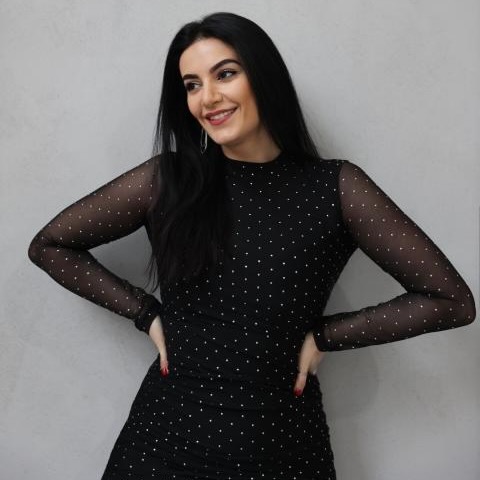
Lyusi Simon
Image courtesy of the artist
Advice for Current Students
The alumni's advice can be boiled down to: dream big, try new things, and make connections.
“More than just classes, it’s a mindset," says Capalbo. "Berklee teaches you how to think musically and creatively at the highest level.”
“Take every opportunity seriously. The people next to you in class could be your future bandmates, business partners, or lifelong collaborators.”
“Don’t box yourself in," says Simon. "Try everything. You might come in thinking you're one kind of musician and leave being something totally different—and that's a good thing."
"Berklee changed my life," she continued. "It made me believe I could do music professionally—not just as a dream, but as a reality.”

